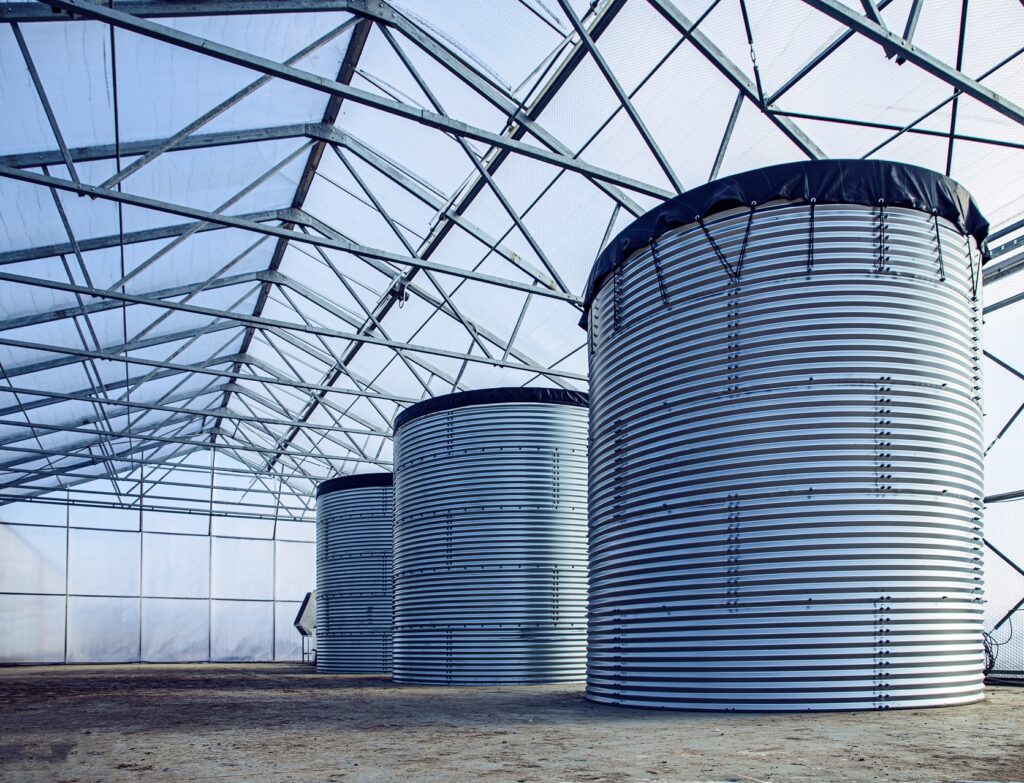As far as waterproofing products and solutions for water tanks go, polyurea is one of the most reliable and durable protective coatings currently on the market. Not only is polyurea incredibly durable and waterproof, it’s also chemically resistant and abrasion-resistant. These are important qualities that ensure the longevity and heightened performance of water tank linings that are used for commercial, industrial, and residential structural applications.

What Is a Polyurea Protective Coating for Water Tanks?
Polyurea is a compound that’s formed as the result of the reaction that occurs when isocyanate and a blend of synthetic resin are mixed together to form an aliphatic or aromatic aggregate. When applied to water tanks, polyurea forms a flexible, yet durable and impermeable smooth protective membrane that prevents water and harmful contaminants from penetrating various building materials including concrete, wood, and steel.
By shielding these surfaces from abrasion and corrosion damage, polyurea helps extend their structural integrity and lifecycles for a number of decades. In fact, industrial-grade polyurea is typically used in wastewater treatment facilities in various communities across North America as a means of protecting tank linings against extensive damages and contaminants.
Types of Water Tanks Using Polyurea Protective Coatings
Polyurea waterproofing solutions work as an effective protective coating for the following types of tanks and tank linings:
- Portable water tanks, which store drinking water
- Storm water tanks which act as detention tanks to help to assist your local area with more manageable loads of water runoff, helping to prevent flooding.
- Penstocks, which are water intake structures that facilitate the efficient flow of water and fluids in dams, power plants, wastewater treatment centers, and hydroelectric facilities.
- Silt release gravity lines, which are systems in which the surface of the water supply is higher than all entry points in the pipeline.
- Domestic and industrial wastewater centers, which are facilities that clean and process water used by communities.
- Nuclear water systems, the nuclear power cycle uses water in three major ways: extracting and processing uranium fuel, producing electricity, and controlling wastes and risks.
- Petrochemical industry effluents for oil and gas production.
Although concrete and corrugated metal are the typical building materials of choice to construct various types of water retention and collection systems, they’re incapable of withstanding corrosion, rust, abrasion, and even cracking under large amounts of pressure. To offset these negative reactions and protect the structure from irreparable or expensive damages, polyurea protective coatings can be applied.
Polyurea is an excellent and affordable waterproofing solution for a variety of tank linings because it’s durable, reliable, affordable, easy to apply, and even easier to maintain. Spray-on polyurea coatings can be applied in just a few hours depending on the size of the structure.
Moreover, it starts curing virtually instantaneously and can be walked on within minutes. After 24 hours, the polyurea membrane is fully cured and the structure is ready to resume usage. Fast curing is an important selling point for polyurea protective coatings because it reduces the amount of downtime needed to complete water lining repairs or installations.
Where to Get Polyurea Protective Coatings in Canada
Regardless of the application, IMC Distributors has the right polyurea products for your next construction or reparative project. We’re the exclusive partner of ISOMAT S.A. and Nukote Coating Systems in Canada and we stand by the quality, durability, and longevity of our products. Contact us today to learn more.
 Karli Logan is the Owner and President of IMC Distributors which is the exclusive partner of Nukote Coating Systems in Canada. With a B.Sc and M.Sc, as well as a demonstrated history of working across a number of industries, she has a passion to drive significant gains and benefits for IMC’s clients.
Karli Logan is the Owner and President of IMC Distributors which is the exclusive partner of Nukote Coating Systems in Canada. With a B.Sc and M.Sc, as well as a demonstrated history of working across a number of industries, she has a passion to drive significant gains and benefits for IMC’s clients.